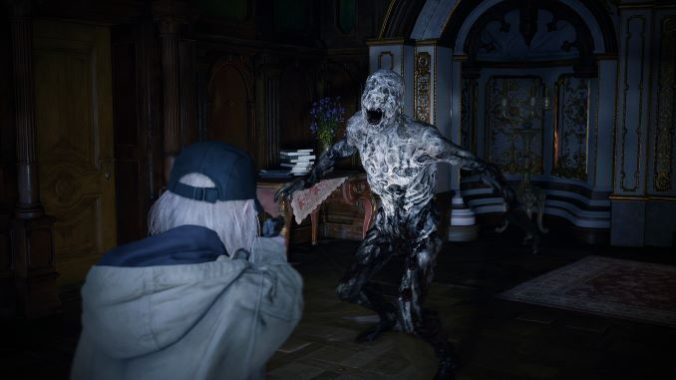Resident Evil Village: Winters Expansion Is An Even More Fractured Follow-up To a Flawed Game

In the decades since Resident Evil first unleashed low-poly nightmares of viral infections, killer zombie dogs, and unhinged pharmaceutical companies, the series has undergone numerous mutations. From their genesis as morbid adventure outings, these games became increasingly focused on action spectacle until eventually zigzagging between these styles with recent additions. The latest was Resident Evil: Village, an uneven but fascinating Frankenstein’s monster of what came before that occasionally gestured at the backtracking-centric puzzle work of its past and then firmly settled into a post-Resident Evil 4 guns-blazing groove. Shadows of Rose, the first story add-on to Village, feels like a further confused and less successful mishmash of the many things that define this franchise. It fails to deliver on the exploration-driven qualities of its early days, its encounters with gross creatures are more frustrating than in the base title, and most of its new ideas feel too insubstantial to matter. While there are a few boons, it’s a mostly skippable entry.
That said, if there’s one immediately noticeable improvement, it’s that one of the blandest protagonists in series history, Ethan Winters, has been replaced by his more compelling daughter Rose. Bullied and ostracized due to her psychic powers, she sets out to seal her abilities by cognitively entering a block of the mutamycete mold that precipitated events in the previous two games. As she delves deeper into this mental construct, she finds similar but warped versions of the settings in Village.
There is somewhat of a tonal shift here from the base game’s camp, as Rose’s adventures are imbued with a schmaltzy and earnest affectation. If Hallmark aired horror programs, they would probably look something like this. While it’s a nice change of pace to have a protagonist whose main goals are working through personal hang-ups rather than dealing with massive corporate conspiracies or global pandemics, it fumbles slightly on its story of self-acceptance, ultimately relying on emotional attachment to the previously mentioned doofiest Resident Evil “hero.”
All of this isn’t particularly deal-breaking, as while I’m liable to become over-invested in this series’ convoluted storytelling, I’m primarily here for how these games deliver powerful visions of what survival horror can be. Aside from one particularly ingenious sequence, Resident Evil: Shadows of Rose fails at either reinventing or evoking past iterations. Structurally, it feels linear compared to the relatively open-ended navigation of earlier entries or even recent titles like the Resident Evil 2 remake. While there are a few branching paths in the middle of the experience, these routes eventually collapse into the guided spectacle of an amusement park ride.
This linearity is embodied in the abundance of chase set-pieces, where you repeatedly sprint through winding hallways beset by red oozing walls. The issue with these segments is they simply aren’t very scary, as interaction is reduced to running in a straight line. As long as I held forward on the control stick, my safety was virtually guaranteed. Resident Evil is at its most terrifying when horror arises naturally from its mechanics, such as the random encounters with reviving Crimson Heads in the 2002 Resident Evil remake or when you hear the awful sound of Mr. X’s thundering footsteps as he emerges from the darkness to give chase. Not only is it engrossing to control which decrepit corner I explore next, but it also means that I can naturally stumble across unfortunate circumstances that I may not escape.
To be fair, Shadows of Rose does occasionally gesture at this. There were moments where excellent visual touches like the protagonist’s jagged breathing and the third-person camera angle combined to create a visceral sense of fear as I probed through jet-black darkness. The problem is that these moments were fleeting, and too much of it was inspired by linear action games.